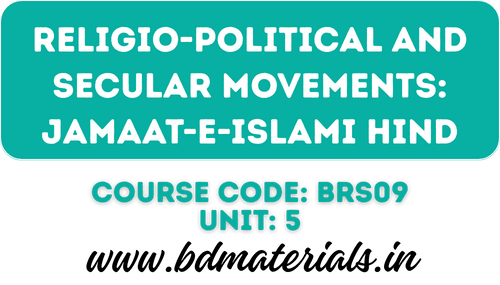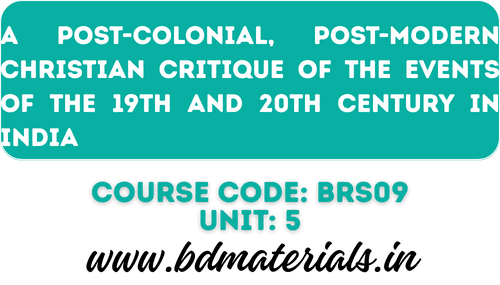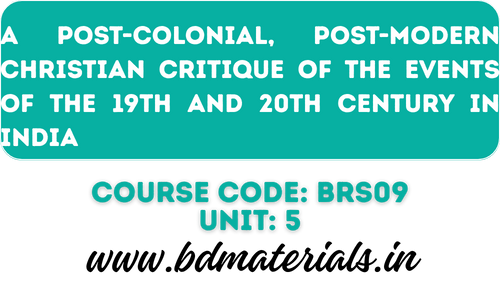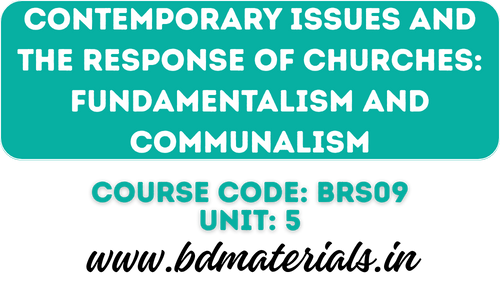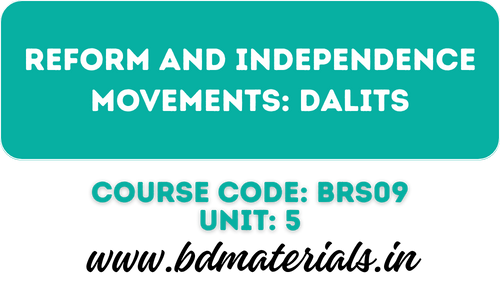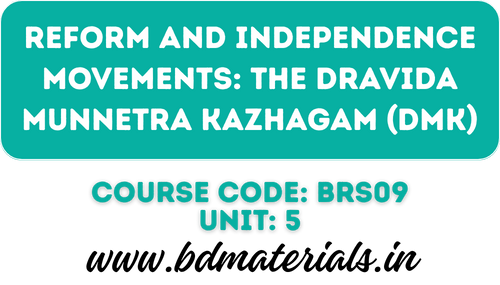Jamaat-e-Islami Hind
Jamaat-e-Islami is an Islamic organisation in India, founded as an offshoot of the Jamaat-eIslami, which split into separate independent organisations in India, Pakistan, Bangladesh and Jammu & Kashmir following the Partition of India in 1947.was formed on 26 August 1941 at Lahore under the leadership of Sayyid Abul Ala Maududi. After the Partition members of the organisation remaining in what became the Republic of India, re-organised themselves to form an independent party, having its own Constitution and separate leadership and organisational structure from Jamaat-e-Islami, Pakistan. Although India was a Hindu-majority country, and beset by at times violent Hindu-Muslim sectarianism, Maududi believed that there was ―at least a 60 per cent chance for Islam’s success in India – Islam as a complete way of life, devoid of nationalism, socialism, liberalism or any other non-Islamic ideologies.
The Indian Jamaat-e-Islami came into being in April 1948 at Allahabad and was officially called ―Jamaat-e-Islami Hind. 240 members attended the first meeting and elected Maulana Abul Lais Nadvi as their Amir (leader), and established their Headquarters at Malihabad, Lucknow, U.P. In 1960, it was shifted to New Delhi.
Jamaat-e-Islami Hind then underwent a process of reorganisation, reframing its Constitution and written policy. The new constitution came into effect on 13 April 1956. The organisation held an All-India Meet at Rampur (U.P) in 1951 followed by meetings at Hyderabad (1952) Delhi(1960), Hyderabad(1967), Delhi(1974), Hyderabad(1981), Hyderabad (1997) and Delhi (2002). It has also held regional conferences on various occasions in different parts of the country. The state chapters of the organisation also hold separate conferences at regular intervals.
The organisation was banned twice by the Government of India during its six decades of existence, the first temporarily during the Emergency of 1975–1977 and then in 1992. While the first was revoked after the Emergency was lifted, the second was reversed by the Supreme Court of India. Issuing its judgement on the ban it remarked about the organisation: as ―an All India organisation professing a political, secular and spiritual credentials with belief in the oneness of God and universal brotherhood.
Aims & Objectives
Officially, the organisation describes its objective as ―Iqaamat-e-Deen or ―Establishment of (Islamic) way of life in all aspects of life with ―achievement of divine pleasure and success in the Hereafter as the sole motive of the effort. It also defines it core doctrine as ―La Ilaha Illallahu Muhammadur Rasulullah (There is no God but Allah and Muhammad is His Prophet). It also states that the Quran and Sunnah would be its base, and all objectives would be achieved only through constructive and peaceful methods of propagation. Furthermore, it states that in all its actions, Jamaat shall be bound by moral limits, and shall never adopt any means which is against truth and honesty or communal harmony. It shall adopt constructive and peaceful methods for a righteous revolution.
Jamaat Philosophy
The essence of Jamaat’s idealogy can be summarized thus:
Outlook on Humankind and Universe
Islam is the ideology of Jamaat. It teaches a three-fold concept: unity and sovereignty of God, the prophethood, and the life after death. From these are derived its outlook on humankind: unity of all humankind, the purposiveness of human’s life and the universality of the way of life. Unity of humankind is possible since all human beings are Adam’s children, hence brethren, and equal subjects and servants of God. There is no superiority in face and blood. There is life after death. On resurrection day, human has to appear before God and render an account of their conduct in this world. They will be either rewarded or punished. The purpose of human life is to so live this earthly life that it leads to the good of the hereafter.
i. Unity and Sovereignty of God
This world and everything in it has been created by one God. He is the creator and sustainer of life. He is the ruler and sovereign. He gives laws to humankind through prophets in order to regulate humankind’s activities. Humankind’s duty is to live life according to God’s law and render allegiance to Him.
ii. Prophethood
Human’s most urgent need is guidance. For this purpose, God has sent prophets to instruct humankind in the true way of life. All prophets have given the same message. The last messenger is Muhammad.
iii. Universality of the Islamic Way of Life
Islam is a religion for all humankind. It is through faithful acceptance of the message and the sincere adherence to it in practice that a person becomes a true Muslim. The Islamic conception of religion is concerned with all the aspects of human life – moral, spiritual, secular and mundane.
Social Activity
The Social Service Wing of the Jamaat coordinates with various NGOs in India under the umbrella of the Human Welfare Trust (HWT) like the Ideal Relief Wing (IRW), Islamic Relief Committee (IRC) and Tamil Nadu Relief Committee (TNRC). The IRW was an active participant in the rescue efforts during the Kashmir earthquake and also played important roles in the relief efforts in the aftermath of the Asian tsunami and the 2008 Mumbai attacks. The TNRC built 38 houses for victims of the Asian tsunami in Tamil Nadu at a total cost of Rs 12.5 million. It also built 160 permanent houses at Nagore, Pudupattinam and Kottakuppam and provided livelihood assistance to hundreds of families in those areas.
The Islamic Relief Committee Gujarat played a major role in rehabilitation of the people of Gujarat in the aftermath of the Gujarat riots and the Gujarat earthquake. It spent almost Rs 40 million for victims of the riots, building 1,321 new homes and repairing 4,946 damaged ones. It allocated another 40 million Rupees for the victims of the Gujarat earthquake. It also led the legal proceedings against the accused in the aftermath of the riots.
Association for Protection of Civil Rights (APCR), an NGO for legal activities backed by the Jamaat works for legal action against human rights violations especially for backward communities and minorities. It has worked along with other NGOs like the PUCL and ANHAD (Act Now for Harmony And Democracy) in contesting the official version of the encounter killings at Batla House, Jamia Nagar in Delhi on 19 September 2008. It has also opposed armed confrontation as a solution to the Maoist insurgency in parts of India.
Work Among Women
The organisation has had active participation from the women of the community through its women’s wing and its feeder organisation, the Girls Islamic Organisation of India. In February 2006, its Andhra Pradesh wing organised a two-days State Women’s conference, the first of its kind at Hyderabad drawing more than 30,000 Muslim women. Speakers at the event emphasised the rights and privileges of women pertaining to education and employment within the framework of Islam and condemned practices like dowry as ―unislamic. In January 2010, the women’s wing in the state of Kerala organised its State Women’s Conference. The conference was inaugurated over video-conferencing by Yvonne Ridley as she was denied a visa by the government of India. The conference issued resolutions calling for reforms in Muslim Personal Law, action against dowry and reclaim of family values.
Work Among Students
Jamaat organizes separate circles of boys and girls almost in all states of India for their religious, moral and social improvement, and gives moral support to Muslim students and youth movements.
Developmental Activities
Jamaat is keenly interested in bettering the standard of living of the people, economically and socially. Primary importance is given to the growth of moral and ethical awareness. They co-operate in all developmental activities which are not contrary to Islamic law.
Politics
They believe in the sovereignty of God, vice regency of humankind, and supremacy of God’s law. They do not take part in parliament since the majority of the citizens in India do not accept divine guidance. However, they do not rule out participation. There is deep patriotism among its members and teach national solidarity as all are children of Adam. They claim that they uphold the democratic character of India and dislike the trends towards totalitarianism and dictatorship. Jamaat supports secularism and wants the secularist government in India to continue. However, secularism should be the policy only at the state level, so that the people are not irreligious. They do not believe in the Secularism of the West.
On 18 April 2011, Jamaat facilitated the launch of a national political party Welfare Party of India, under a leadership that included top functionaries of the organisation and members from the wider Muslim community and outside, including a Christian priest.
Communal Harmony
The Jamaat still gives top priority to the removal of communal distrust. They counsel the Muslims to have restraint when there are provocations. The Muslims who remained in India after the partition were totally demoralized due to the partition, Jamaat restored confidence in them. The organisation condemned all incidents of bomb blasts and disruptive acts in various parts of the country and demanded an ―impartial and honest probe into all such incidents and formation of ―a sensible and effective strategy to check such incidents. It has also voiced its concern on what it sees as a prejudiced approach by the authorities and the media to blame the Muslim community in the immediate aftermath of such incidents.
The Central Advisory Council of the Jamaat-e-Islami Hind adopted a resolution on 9 November 2001, condemning global terrorism, saying that some people having immoderate sentiments associate terrorism with religion while religion strictly opposes it. As for Islam, killing an innocent person is tantamount to killing all human being and saving the life of a person is saving the entire human folk.
On the issue of communalism and riots, Jamaat has been in the fore front of opposing any sort of imposition of particular religion, culture and language on others by force. It has often said that, creating animosity, hatred in the name of religion among different groups is not acceptable. It has also laid stress on the importance of freedom of faith and religion and would oppose any legislations which violate this freedom.
Evaluation
To sum up, we can say that the Jamaat-e-Islami Hind firmly believes that Islam which has been the religion of humanity, is eminently suited to resolve our present problems and to lead a life of real happiness in this world and the hereafter. The Jamaat has been involved in many activities for the upliftment of society and their contribution in relief and rehabilitation works has also been commendable. Their stand on communal harmony and riots are also much appreciable.
However, the very philosophy that Islam is the answer to all the problems exhibits the exclusivistic attitude of the Jamaat-e-Islami Hind. They are at heart a true Islamic organization whose ultimate aim is to establish a society based on the teachings of the Qur’an and the Sharia.
Friendly Note
Bachelor of Divinity Materials is your go-to resource for comprehensive Biblical studies, supporting students in Bachelor of Divinity (B.D.) and other theological courses. Our platform offers access to the full syllabus, detailed answers, and a vast collection of assignments, study guides, articles, and research papers to help you excel academically.
We provide downloadable PDFs of study materials, including books and journals, for convenient learning anytime, anywhere. Whether preparing for exams or conducting research, our resources cater to both students and scholars in biblical studies.
Committed to empowering theological learners, we aim to deliver high-quality, authentic study materials. Explore Bachelor of Divinity Materials to deepen your understanding of God’s Word and Christian doctrine, making it a valuable resource for aspiring ministers and anyone dedicated to theology.
